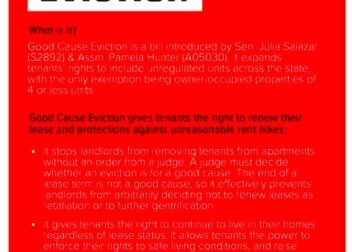Michigan Bed Bug Laws: Rights of Tenants and Landlords
Bed bug infestations can be a nightmare for anyone, whether you’re a tenant or a landlord. In Michigan, these pests are more than just a nuisance; they can lead to significant health and financial issues. Understanding how bed bugs thrive and spread is crucial in addressing the problem effectively.
Bed bugs are small, brown insects that feed on human blood. They are often found in:
- Mattresses and box springs
- Bed frames and headboards
- Couches and chairs
- Clothing and luggage
They can travel easily, making it easy for them to infest multiple units in apartment buildings. Signs of an infestation include:
- Dark spots on bedding or furniture (fecal stains)
- Bed bug bites on your skin
- Shells from molted bed bugs
Addressing a bed bug problem quickly is key. The longer they are allowed to spread, the harder they are to eradicate.
Legal Responsibilities of Landlords Regarding Bed Bugs
In Michigan, landlords have specific legal responsibilities when it comes to dealing with bed bug infestations. According to Michigan law, landlords must provide habitable living conditions, which include being free from pests.
Key responsibilities include:
- Prompt Response: Landlords must respond quickly to tenant complaints about bed bugs.
- Inspection: They should inspect the unit to confirm the presence of bed bugs.
- Pest Control: Landlords are responsible for hiring a licensed pest control professional to handle infestations.
- Notification: They must inform tenants of any pest issues and the actions being taken.
Failure to meet these responsibilities can result in legal consequences for landlords, including potential lawsuits or damages to the tenant.
Tenant Rights When Facing Bed Bug Issues
As a tenant in Michigan, you have rights when it comes to dealing with bed bug infestations. Knowing these rights can empower you to take the necessary steps to protect yourself and your living situation.
Your rights include:
- Right to a Habitable Environment: You have the right to live in a space that is free from pests, including bed bugs.
- Right to Report: You can report bed bug infestations without fear of retaliation from your landlord.
- Right to Repairs: If your landlord fails to address the infestation, you can request repairs or even take further action.
It’s essential to document your situation by keeping records of:
- Any communication with your landlord
- Photographic evidence of the infestation
- Records of pest control treatments
Being informed about your rights will help you navigate this challenging situation and seek appropriate remedies.
Steps Tenants Should Take When Dealing with Bed Bugs
Dealing with bed bugs can be overwhelming, but taking the right steps can help you tackle the issue effectively. As a tenant, it’s important to act quickly to minimize the infestation and protect your home. Here are some steps you should consider:
- Identify the Problem: Look for signs of bed bugs, such as bites on your skin, dark spots on bedding, or the bugs themselves. Early detection is key!
- Notify Your Landlord: As soon as you suspect a bed bug problem, inform your landlord in writing. Provide details about what you’ve seen or experienced.
- Prepare for Treatment: Follow any instructions your landlord or pest control company provides. This may include washing your bedding and clothing in hot water, vacuuming your space, and removing clutter.
- Cooperate with Pest Control: Be available for scheduled pest control treatments. Make sure to follow all pre-treatment instructions to ensure effectiveness.
- Monitor the Situation: After treatment, continue to inspect your home for any signs of bed bugs. It might take more than one treatment to eliminate them completely.
By taking these steps, you’ll be better prepared to manage the situation and protect your living space from these unwanted pests.
Landlord’s Obligations for Pest Control
When it comes to pest control, landlords in Michigan have specific obligations to ensure their rental properties are safe and habitable. Understanding these responsibilities is crucial for both landlords and tenants. Here’s what landlords are required to do:
- Immediate Response: Upon receiving a complaint from a tenant, landlords must respond promptly and investigate the issue.
- Hire Licensed Professionals: Landlords should engage licensed pest control services to effectively address infestations. DIY methods may not be sufficient.
- Communicate with Tenants: Keeping tenants informed about pest control efforts, schedules, and any necessary preparations is essential.
- Follow-Up: After treatment, landlords should check in with tenants to ensure the issue has been resolved and that no further signs of infestation are present.
Failure to fulfill these obligations can lead to legal repercussions, as tenants have the right to a pest-free living environment. By being proactive, landlords can maintain their property’s reputation and tenant satisfaction.
How to Document Bed Bug Problems
Documenting bed bug problems is crucial for both tenants and landlords. Proper documentation can help clarify the situation and provide evidence if legal action is necessary. Here’s how you can effectively document bed bug issues:
- Keep a Written Record: Document all communications with your landlord regarding the bed bug problem. Note dates, times, and the content of conversations.
- Take Photos: Capture clear photos of any bed bugs you find, along with bites or damage caused. These images can serve as valuable evidence.
- Log Treatments: Maintain a record of any pest control treatments, including dates, services provided, and any follow-up actions.
- Collect Witness Statements: If other tenants are also affected, gather their statements to show the extent of the infestation.
By thoroughly documenting the problem, you can ensure your concerns are taken seriously, whether you’re seeking resolution with your landlord or considering legal action.
Potential Legal Actions for Tenants and Landlords
When bed bug issues arise, both tenants and landlords need to know their legal options. Understanding these options can help either party take the necessary steps to resolve the problem effectively. Here are some potential legal actions:
- For Tenants:
- File a Complaint: If your landlord fails to address a bed bug infestation, you can file a complaint with your local health department or housing authority.
- Withhold Rent: In some cases, tenants may have the right to withhold rent until the problem is resolved. However, it’s essential to consult with a legal professional before taking this step.
- Seek Damages: Tenants may pursue legal action for damages caused by the infestation, including medical bills or damage to personal property.
- For Landlords:
- Eviction: If a tenant is causing ongoing pest problems through negligence or failure to cooperate with pest control efforts, a landlord may consider eviction.
- Legal Recourse: Landlords can seek damages from tenants if they believe the tenant caused the infestation or failed to report it in a timely manner.
It’s crucial for both parties to document all communications and actions taken during this process. This documentation can serve as evidence if legal action becomes necessary.
Frequently Asked Questions About Michigan Bed Bug Laws
When it comes to bed bugs in Michigan, tenants and landlords often have many questions. Here are some frequently asked questions to help clarify common concerns:
- Who is responsible for pest control? Landlords are generally responsible for pest control in rental units, but tenants should report any issues promptly.
- Can a tenant withhold rent for bed bug issues? In some cases, tenants may withhold rent, but it’s essential to seek legal advice before doing so.
- What should I do if I find bed bugs? Report the issue to your landlord immediately, and follow any instructions they provide regarding pest control.
- Can I take legal action if my landlord ignores my complaints? Yes, tenants have the right to file complaints with local authorities or seek legal action if their landlord fails to address the issue.
Understanding these questions can help both tenants and landlords navigate bed bug issues more effectively and ensure their rights are protected.
Conclusion on Tenant and Landlord Rights Regarding Bed Bugs
Bed bugs can create significant challenges for both tenants and landlords in Michigan. Understanding your rights and responsibilities is key to addressing infestations effectively. Tenants have the right to a safe, habitable living environment, while landlords are obligated to take action when pest issues arise.
By maintaining open communication and following the appropriate steps, both parties can work together to resolve problems. Remember, documenting all interactions and actions taken is crucial for protecting your rights.
Whether you’re a tenant dealing with a bed bug infestation or a landlord managing a rental property, being informed about Michigan bed bug laws will help you navigate these challenges and find a resolution that works for everyone involved.


